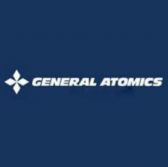 General Atomics has secured a $38.5M to help NASA deploy a space-based instrument designed to measure the radiance and polarization of sunlight based on the dispersal of aerosols in the atmosphere.
General Atomics has secured a $38.5M to help NASA deploy a space-based instrument designed to measure the radiance and polarization of sunlight based on the dispersal of aerosols in the atmosphere.
The company will host the Multi-Angle Imager for Aerosols technology on a commercial satellite in low-Earth orbit as part of a mission to determine sizes, types and quantities of particulate matter in air pollution, NASA said Friday.
Work runs through Aug. 30, 2027 and covers integration planning; contractor ground system design; testing; spacecraft integration; launch and in-orbit checkout; pre-launch processing and on-orbit spacecraft operations.
NASA’s Jet Propulsion Laboratory in Pasadena, Calif., developed MAIA through the Earth Venture Instrument project under the Earth System Science Pathfinder program.
Earth Venture programs are competitively selected projects focused on hosting next-generation instruments on airborne systems, small satellites or other large platforms as secondary instruments.
The MAIA project aims to provide supplemental information on research regarding aerosol pollutants and their harmful impacts to the body such as respiratory, cardiovascular and birth-related health problems.




